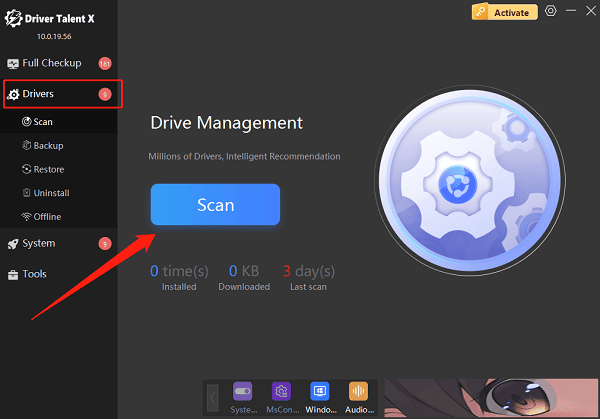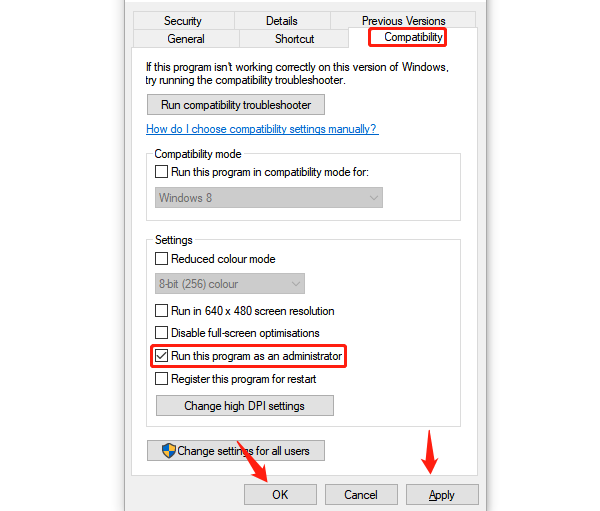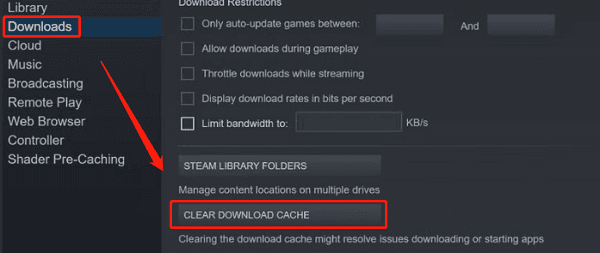Steam is one of the most popular gaming platforms in the world, but many Windows users encounter the issue of "Steam won't launch" or "double-click with no response". This article will thoroughly analyze the common causes behind Steam failing to open and provide a series of effective solutions to help you quickly restore Steam to normal operation.
Common Causes of Steam Failing to Launch
Before jumping into the fixes, it's important to understand the root of the problem. Here are some of the most common causes:
Faulty or outdated drivers causing system instability
Corrupted or missing Steam files
Insufficient system permissions or antivirus interference
Windows update or compatibility issues
Network problems or proxy interference
Background processes blocking new ones from starting
How to Fix Steam Not Launching
1. Check and Update Device Drivers
Outdated or corrupted drivers may affect Windows stability, leading to Steam failing to launch. It's recommended to use Driver Talent X, a tool that saves time and prevents downloading or installing incorrect drivers.
Click the download button to get the latest version of Driver Talent X, then install and launch it.
In the "Drivers" section, select the "Scan" option and click "Scan". The software will automatically detect the status of all your drivers.

Locate the graphics driver in the scan results and click "Upgrade".
Restart your computer after the update to ensure the new driver takes effect.
2. Run Steam as Administrator
Close Steam completely.
Right-click the Steam shortcut on your desktop and select "Properties".
Go to the "Compatibility" tab and check "Run this program as an administrator".

Click "Apply" > "OK", then relaunch Steam.
3. Delete the ClientRegistry.blob File
This file may be corrupted, preventing Steam from launching:
Go to the Steam installation directory (default: C:\Program Files (x86)\Steam).
Locate and delete the "ClientRegistry.blob" file.
Restart Steam; the file will be regenerated automatically.
4. Verify Game File Integrity
Open Steam and go to your Library.
Right-click the game with issues and select "Properties".
On the left, go to "Installed Files", then click "Verify integrity of game files".

Wait for Steam to detect and fix any issues, then restart Steam and try launching the game again.
5. Run the Steam Repair Command
Press Win + R to open the Run dialog.
Enter the following command and press Enter: "C:\Program Files (x86)\Steam\bin\SteamService.exe" /repair
(Note: Adjust the path if Steam is installed in a different directory.)
6. Manually Adjust File Permissions
Open File Explorer and go to the Steam installation directory (default: C:\Program Files (x86)\Steam\steamapps\common\).
Find the game folder with issues, right-click it and select "Properties".
Go to the "Security" tab and click "Edit".
Select "Users", check "Full Control", then click "Apply" and "OK".
Relaunch Steam and try downloading or updating the game again.
7. Clear Download Cache
Corrupted download cache can also prevent Steam from launching:
Open Steam (if accessible).
Go to "Settings > Downloads > Clear Download Cache".

If Steam won't open at all, delete the appcache folder in the Steam directory manually.
8. Uninstall and Reinstall Steam (Keep Game Files)
If all else fails, consider reinstalling Steam:
Uninstall Steam via Control Panel.
Before uninstalling, back up the steamapps folder to retain your installed games.
Download and install the latest Steam client from the official website.
Tips to Prevent Steam Launch Issues
Keep your system and graphics drivers updated regularly
Avoid using cracked patches or modifying Steam files
Maintain sufficient disk space to prevent Steam errors
Avoid forcefully closing Steam frequently to prevent file corruption
Encountering issues where Steam won't launch is not uncommon, but most cases can be resolved with the methods outlined in this guide. Users are encouraged to troubleshoot from the simplest steps and choose solutions based on their specific system situation.
If you use Steam frequently, consider installing Driver Talent X to automatically detect and update your system and graphics drivers. It's an effective way to prevent startup issues caused by driver problems.
